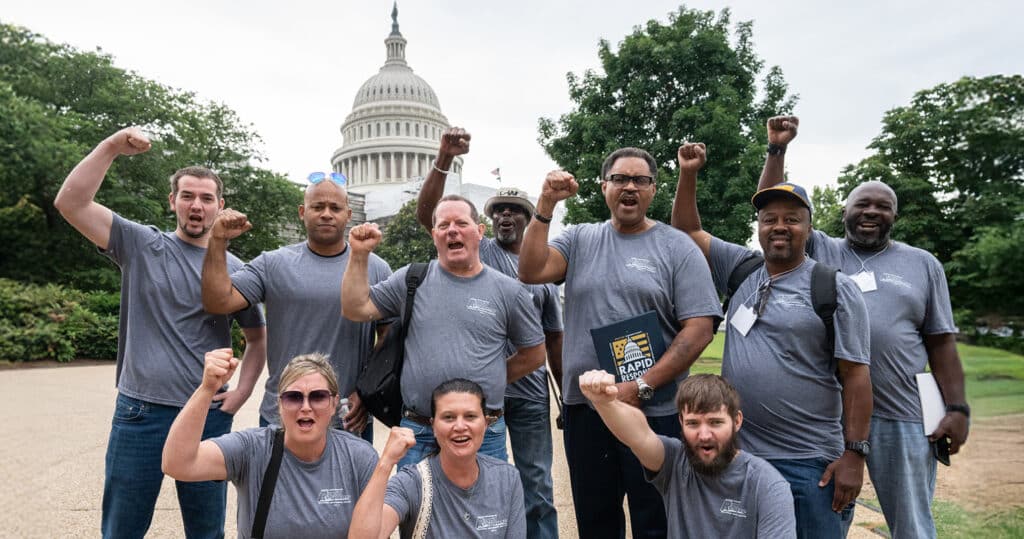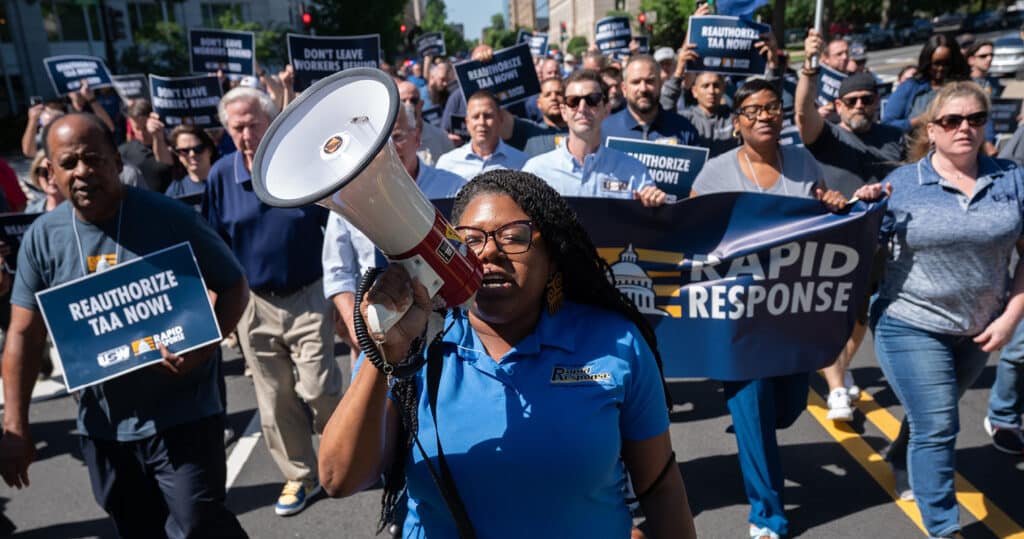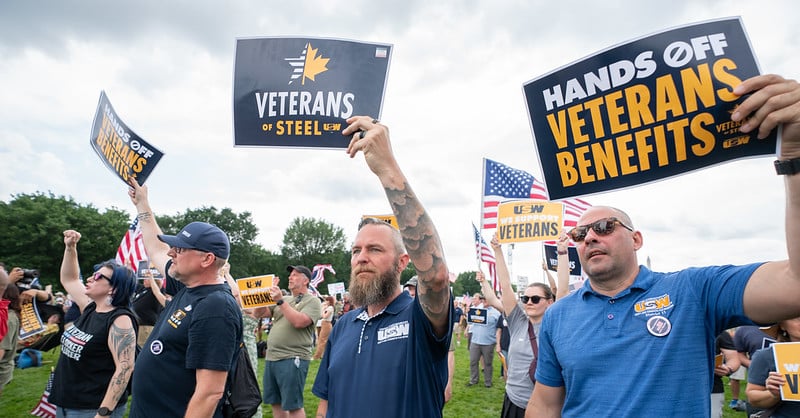Rapid Response Turns 30

In 1995, workers saw a shifting political landscape in Washington, D.C. The North American Free Trade Agreement had taken effect a year earlier, and the 1994 elections saw an anti-worker majority take control of Congress for the first time in 40 years.
Workers were on the defensive. Pensions were under attack, and vital programs like Social Security and Medicare had an uncertain future. Leaders in the labor movement sought to reinvigorate and mobilize rank-and-file members to confront changes that could hurt working families.
It was in that environment that USW members created what remains one of the most effective grassroots, member-driven education and mobilization programs in the country – Rapid Response.
From the beginning, when fax machines and land-line phones were their chief modes of communication, Rapid Response activists were all about issues, not politics. Members raise their voices on any policy that affects workers – at the federal, state or local level.

The idea came from a phone-tree system that then-International President George Becker remembered from his home local, and was modeled after a successful pilot program that local activist Donnie Blatt, his twin brother Ronnie, and other USW leaders developed at Local 5724 in Hannibal, Ohio.
“USW Local 5724 was honored to be connected to Rapid Response by organizing the very first Rapid Response committee,” said Donnie Blatt, now District 1 director. “Rapid Response has since become one of the most recognized and successful programs in USW history.”
Local 5724 mobilized hundreds of workers to write letters to Congress in response to a threat to pension funds. Soon, the USW executive board sought to establish similar programs in districts and locals throughout the United States under the direction of rank-and-file activists.
One of those activists was David Beard of Local 752L in Texarkana, Ark. Beard said technology has helped more workers get involved in Rapid Response, allowing members to view legislation, have debates with co-workers and contact lawmakers, all from a hand-held device.
“It’s unbelievable now, all the outlets we have,” he said.

Beard listed victories that Rapid Response activists have delivered for workers over the decades, on issues including Buy American, veterans’ services, manufacturing policy, workers’ compensation, health care and others.
One of the most important aspects of the program, Beard said, is education, helping workers cut through rampant misinformation. He credited Rapid Response Director Amber Miller and her predecessor, Kim Miller, with building the program into a powerhouse.
Beard said it’s more important than ever for members to speak out as their rights are under attack like never before.
“It takes a team, and you have to be willing to stand for the truth,” he said, “no matter how many people are against you.”
Members who want to get involved in the Rapid Response program can visit their page.
By clicking Sign Up you're confirming that you agree with our Terms and Conditions.
Recent News Articles
Want to Learn More?
See how the USW is making a real difference in our communities and our workplaces.
